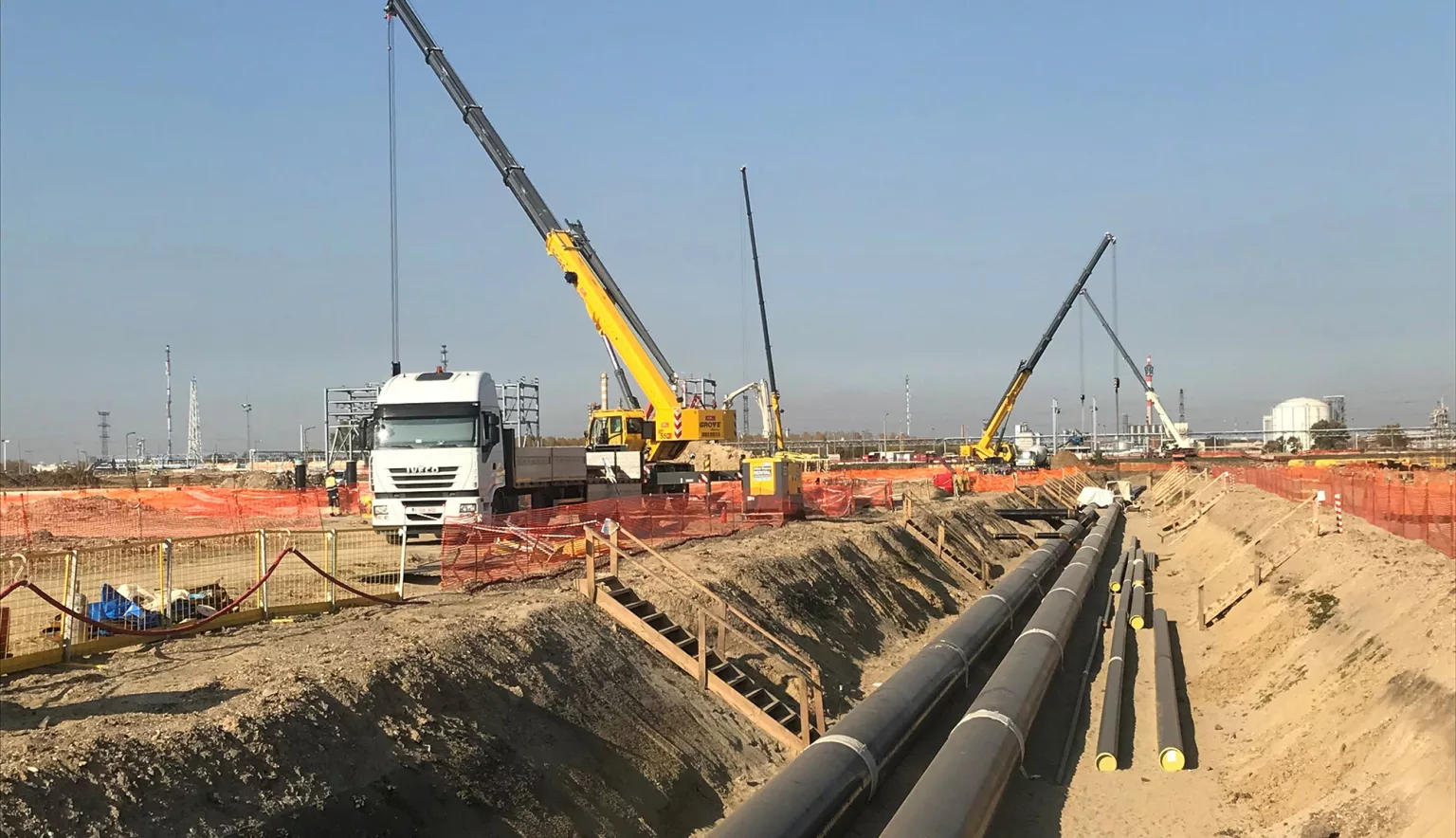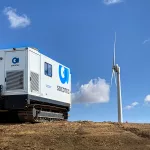With an eye for competitive contracting and a nous for operational excellence, the operations of Synergy Construct span Romania, Hungary and Georgia.. Savas Günata, Managing Partner, tells its story.
CAN-DO CONTRACTING
The European Union has experienced a host of adaptations during its prolonged 70-year evolution. But its primary purpose remains the same today as the one laid out during the aftermath of the Second World War – to turn Europe into a creative force of collaboration in order to promote peace and inclusion, economic, scientific and economic development, and environmental protection.
Indeed, modern grievances with the EU have been well cited during the turbulent Brexit period, be it a perceived lack of transparency of the organisation or the astronomical costs involved with membership.
Its advantages, however, are equally prominent, with many countries having benefitted in everything from greater consistency in human rights and improved food standards to enhanced continental competition and collective protection.
Indeed, Romania is one such country that has harnessed the fruits of the EU, even prior to its admission in 2007, and Synergy Construct is a perfect example as to why.
“Having spent much of my career as a civil engineering professional, myself and my colleague Huseyin Karali set up Synergy Construct in Romania in 2001,” explains SavaşGünata, Co-Managing Partner of the organisation. “The country at this time was seeking acceptance into both NATO and the European Union, and because of this foreign direct investment (FDI) exploded.”
Indeed, the statistics back up Günata’s claims. Between 2000 and 2004, FDI into Romania grew 600 percent, reaching $13.6 billion, and by 2006 it accounted for roughly 30 percent of national GDP.
“I guess you could say we were in the right place at the right time,” he muses, pointing to the surge in infrastructural opportunities that came with this surging economy – opportunities that the company was ideally positioned to capitalise upon.
Starting out from scratch as a fitouts contractor, Synergy Construct rode Romania’s economic tailwinds (national GDP growth reaching 8.4 percent by 2004) and quickly consolidated a sound reputation, transitioning into a multifaceted entity providing sustainable building solutions throughout the commercial, industrial and public sectors.
“By 2008, our annual turnover had reached €120 million in the Romanian market, making Synergy one of the top three such contractors in the country during that time,” Günata adds, pointing to the firm’s undoubted pedigree and astronomical growth.
Indeed, like many businesses around the world, the global financial crisis of 2008 placed a strain on the enterprise during the early stages of this century’s second decade. More recent times, however, have facilitated an upturn in fortunes, the company on track to return to the same lofty heights it reached in the pre-crash era with global revenues forecast at €110 million this year.
“Our pipeline comprises of approximately €140 million worth of projects, and we’re on track to see 25 to 30 percent growth during 2020,” Günata affirms. “There’s certainly reason for optimism.”
INTERNATIONAL INSPIRATION
Much of Synergy’s current success derives from cross-border expansions, the firm having capitalised on new opportunities in Georgia and more recently Hungary.
Having attempted to established itself in Libya roughly 11 months prior to the outbreak of the 2011 civil war, the firm was forced to withdraw before setting its sites on other ambitions in Ukraine, acting as the partner for the HVCV works on the country’s new airport, and Georgia, working on an energy-related EPC project being carried out by Siemens.
“In regard to the latter, we were invited for the civil works tender and won,” Günata states. “Since then, we’ve maintained our presence in Georgia and last year expanded into Hungary, acknowledging the country’s demands for experienced contractors.
Securing its first project, the business launched a local subsidiary in the form of Synergy Hungary Kft – an entity that has gone from strength to strength in the 18 months since its inception.
“We’re anticipating this division will account for more than half our annual revenue for 2019,” the Managing Partner reveals, “owed to contracts including the Cargo City Project Forwarder Facility that we’re working on at Budapest Airport.”
This entails the design and construction of a warehouse with an office mezzanine and three-storey office block, the facility (roughly spanning 12,000 square metres in total) set to help absorb the 39 percent increase in cargo traffic that the airport has experienced in recent years.
“This will be delivered by the year’s end,” Günata continues.
“Further, we’ve also been working with thyssenkrupp Industrial Solutions in Tiszaújváros, Hungary, assisting on the delivery of a €1.2 billion polyether polyol production plant for national oil and gas giant MOL.
“We’ve been employed to undertake the construction side of the EPC works in what will become a crucial oil and gas facility for the country. It’s been quite a challenge dealing with the strict milestones and conditions of this project, but overcoming these has only served to improve our standards in relation to quality assurance and quality control.”
Accompanying these two flagship developments, Synergy has also been working with Enayati on the design and construction of the Revera Medical City – set to become Romania’s largest private medical centre at 35,000 square metres in total – and recently secured repeat business with Procter & Gamble off the back of the completion of an 8,000 square metre production facility in Bucharest back in 2010.
“It is this diverse selection of references that differentiates us,” the Managing Partner declares. “We have a very wide remit – except for motorways and tunnels, we’re able to undertake almost any EPC project in a host of European countries.”
MAINTAINING MOMENTUM ON MULTIPLE FRONTS
Owed to this expansive pipeline, Synergy’s upward trajectory is assured.
In order to maintain the curve, the firm is investing in both state-of-the-art equipment and its human resource base, enhancing its existing capabilities and productive capacity in order to cater to any further demands.
Such is most evident in Hungary – a country where the firm has experienced unprecedented growth.
“Given the fact that we weren’t even in Hungary two years ago, we’ve understandably faced a multitude of challenges,” Günata affirms. “We’ve recently been working on structural optimisations, however, and beginning 2020 will roll out a significant HR investment policy.
“We’ve recently held talks with the University of Civil Engineering in Budapest in line with this – we hope to develop relations with educational institutions to provide us with the opportunity to help nurture some of the country’s best talent in the near future.”
These efforts form just one major part of Synergy’s three-pronged strategy for the future, the company also casting a close eye over oil and gas and energy-related EPC contracts in new markets.
“We recognise that it’s a major challenge to establish presence in new markets; that it requires a lot of patience, investment and energy,” Günata continues. “But we feel this space is particularly promising, and we’re hoping for it to become an even more exciting part of our future through 2020.
“Thirdly, we’ll be looking to develop more of our own projects in Romania. We’re currently working on some high-end residential buildings in northern Bucharest, but it’s an area we’re looking to pursue more actively and aggressively in the near-term.”
Cultivating new ambitions on multiple fronts, Synergy’s diversified approach is likely to prove fruitful in enabling the firm to achieve its overriding goal of meeting 25-30 percent growth, not just for 2020, but for each following year.
Only time will tell of course, but right now, the future looks bright for the business.
























